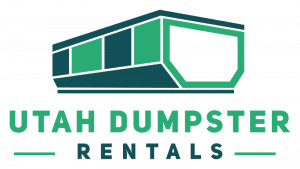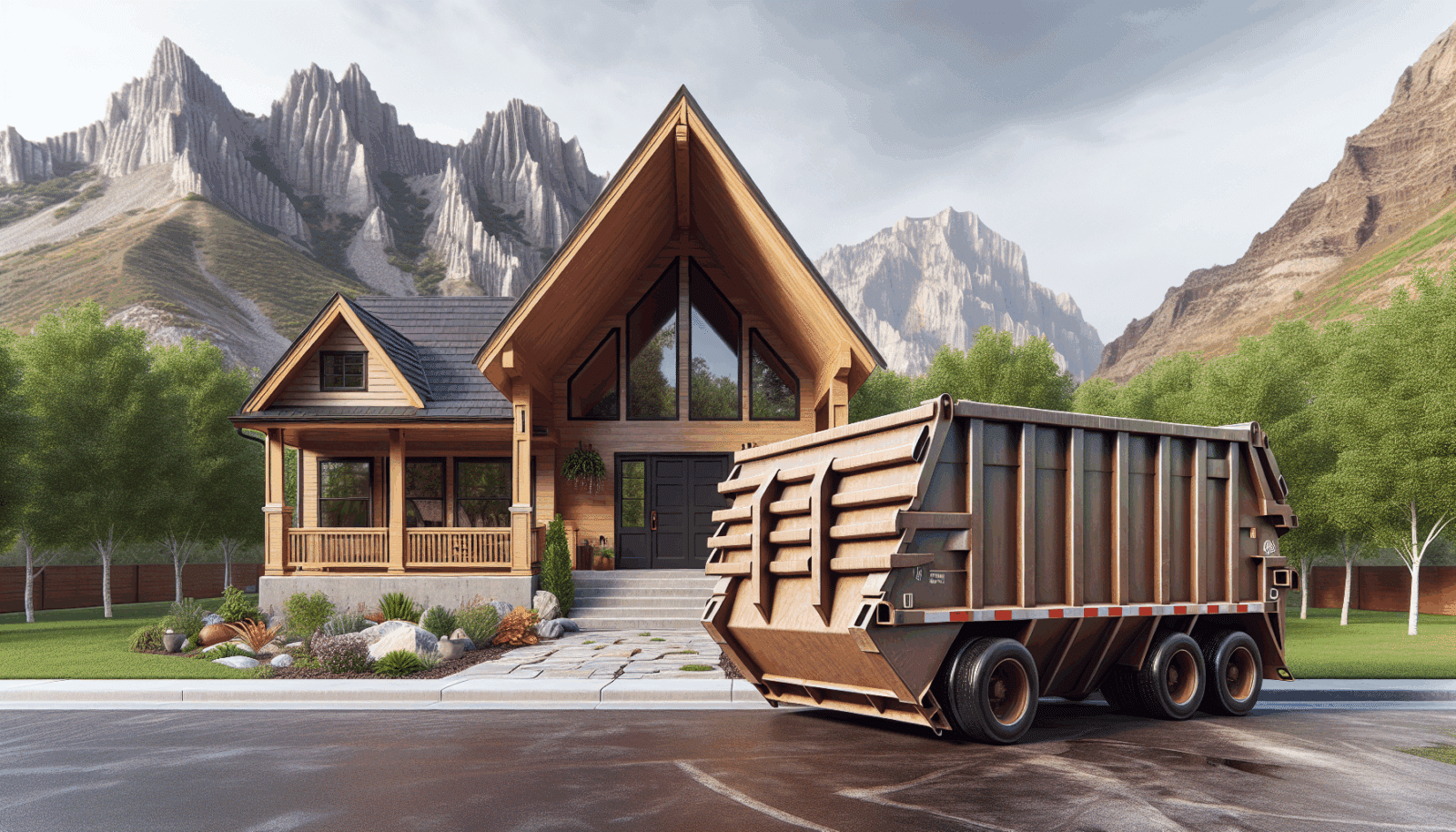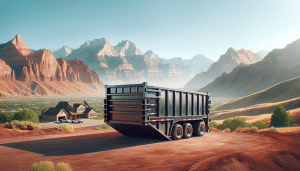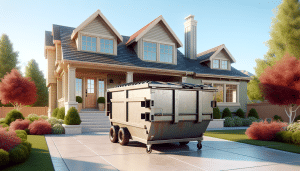Utah Dumpster Rentals is here to make your Commercial dumpster rental experience smooth and straightforward. Knowing what to expect can save time, money, and headaches. This blog aims to educate homeowners about the top 10 things to know before renting a commercial dumpster.
Contents
Determine Your Dumpster Size
Choosing the right dumpster size is crucial. Renting a dumpster that’s either too big or too small can be a costly mistake. Understanding your needs will help streamline the process.
Consider the volume of waste you’ll be disposing of. For example, a smaller job may only need a 10-yard dumpster while larger projects might require a 30 or 40-yard dumpster. Consult with us to decide the best size for your project.
Remember, overloading the dumpster might mean additional fees, so it’s better to overestimate your needs slightly than to underestimate them.
Understand What You Can and Cannot Dispose Of
Not all waste can go into a commercial dumpster. Being aware of local regulations and restrictions can help avoid any legal trouble or additional charges.
Common prohibited items include hazardous materials, electronics, and tires. Make a list of your waste items and consult with us to ensure they can all be disposed of properly.
Segregating your waste beforehand can save you time and money. Separate recyclables and hazardous materials from general waste to make disposal easier.
Know the Rental Period
Understanding the rental period for your commercial dumpster is key to efficient project planning. Different projects require different time frames, and knowing how long you can keep the dumpster will help you plan effectively.
We offer flexible rental periods to suit your project’s timeline. Discussing your needs with us will help secure the right timeframe.
Renting the dumpster longer than necessary can incur additional fees, so having an estimated timeline for your project is beneficial.
Location, Location, Location
Where you place the dumpster on your property can affect accessibility and overall convenience. Proper placement can make your project run more smoothly.
Choose a location that’s flat, easily accessible, and causes minimal disruption to your property. Familiarize yourself with local zoning laws to ensure your chosen spot complies with regulations.
Communicate with your contractor to decide the best location for ease of use during your project.
Weight Limits
Every dumpster has a weight limit to ensure safety and compliance with transport regulations. Exceeding the weight limit can result in extra charges.
Our dumpsters come with specific weight limits that you’ll need to be aware of. Planning your waste disposal carefully can help you stay within the limit.
If you think you may exceed the weight limit, discuss options with us beforehand. We can often provide solutions to accommodate heavier loads.
Permit Requirements
Certain Locations may require a permit to place a dumpster, especially if it will be on public property. Knowing permit requirements in advance can save you from unexpected issues.
Check with your local municipality to see if a permit is needed. We’ll also be happy to guide you through the permit process if you need assistance.
Obtaining the necessary permits ahead of time can prevent delays in your project timeline.
Consider Recycling
Recycling can be a more eco-friendly and often cheaper alternative to simply disposing of all materials. Understanding how to separate recyclables can make your project more environmentally responsible.
- Identify Recyclable Items: Determine which items in your waste can be recycled to reduce landfill waste.
- Separate Materials: Keep recyclables and non-recyclables in separate bins to streamline the sorting process.
- Consult Local Recycling Rules: Learn about local recycling guidelines to ensure compliance.
- Reduce Costs: Recycling can often lower disposal costs, so it’s worth considering.
- Environmental Impact: Recycling helps reduce your carbon footprint, making your project more sustainable.
Evaluate Access Needs
Your project may require frequent access to the dumpster, and restricted access can lead to inefficiencies. Proper planning ensures smooth waste disposal without hindering project flow.
Ensure that the dumpster is easily accessible to work crews and waste haulers. This can save a lot of time and hassle during your project.
Discuss access needs with us to ensure the dumpster’s placement aligns with your project’s workflow.
Consider Safety Requirements
Safety is paramount when dealing with a commercial dumpster. Understanding and adhering to safety measures can prevent accidents and injuries.
Make sure the dumpster is placed in a safe location, away from public pathways and building entries. Equip your team with the necessary safety gear and instructions.
We can provide guidelines on safe dumpster use to protect your property and personnel.
Cost Transparency
Understanding the cost structure upfront can help you budget effectively and avoid unexpected expenses. Knowing what’s included in your rental can make a big difference.
We’ll provide a detailed cost breakdown that includes rental fees, weight limits, and any potential additional charges. Transparency is key to avoiding budget overruns.
Discussing your needs and expectations with us will help ensure there are no surprises when it comes to billing.
For more details on renting a commercial dumpster with us, call us at 801-901-9871 or Request a Free Quote.




